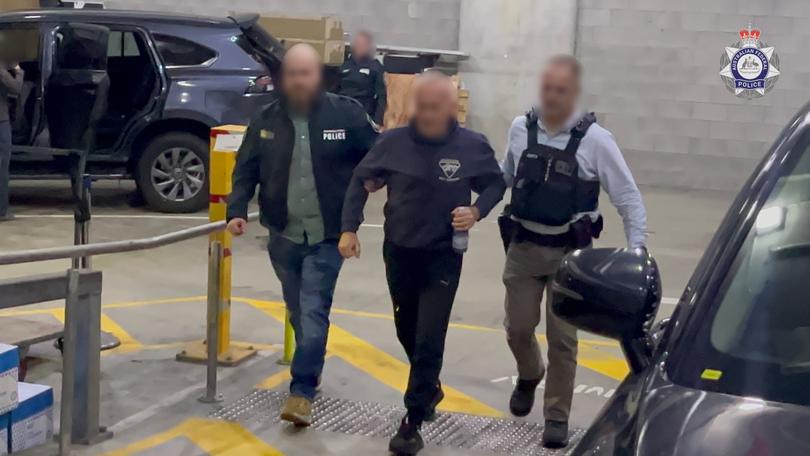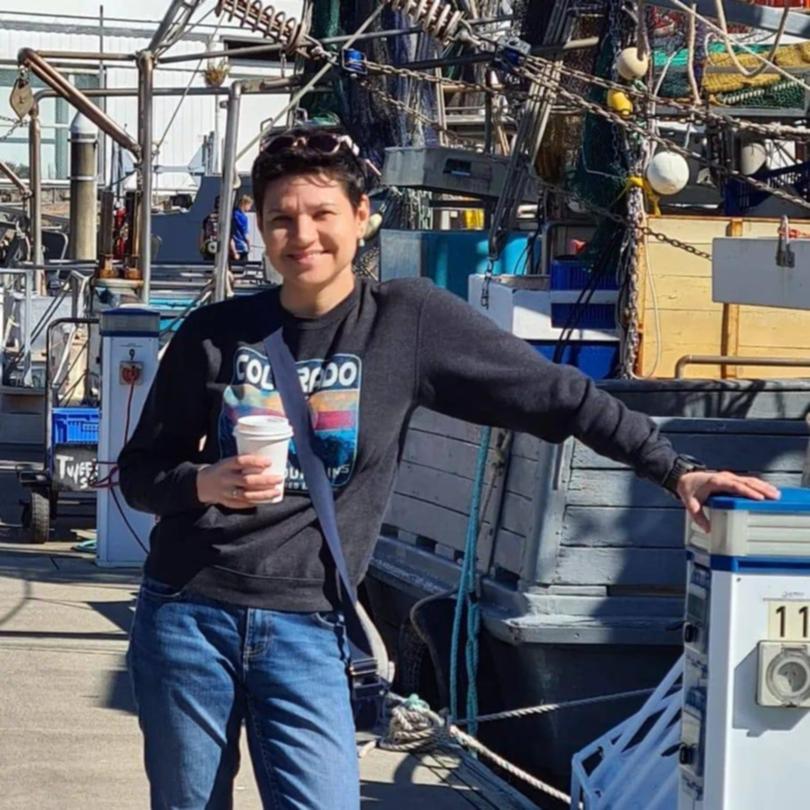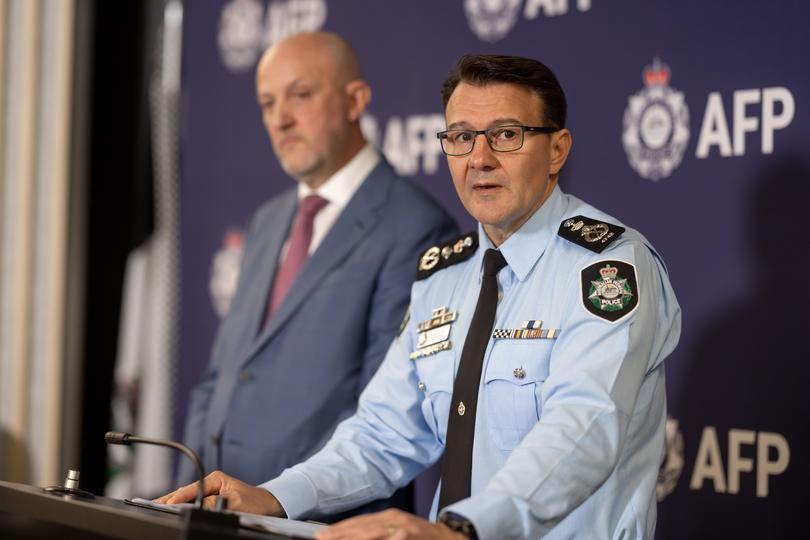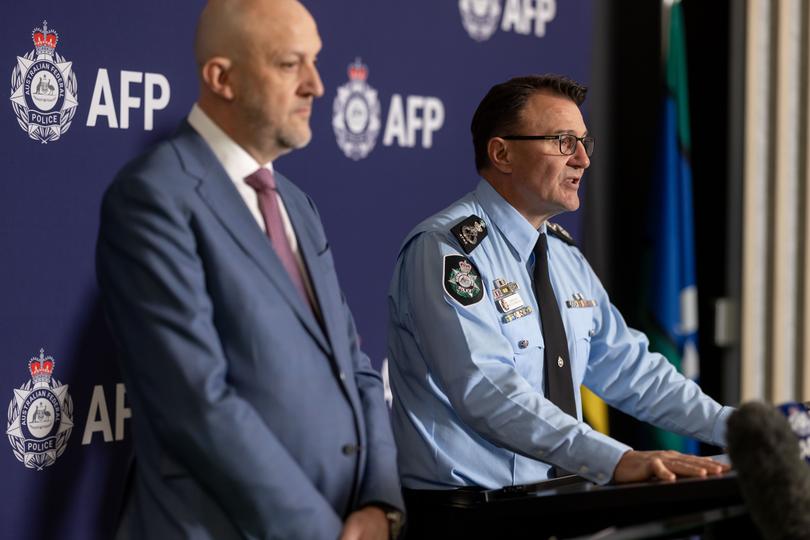Espionage: Australian Federal Police charge couple over alleged ADF Russia leaks
An Australian army private and her husband charged with espionage offences after they allegedly tried to obtain sensitive defence material to leak to Russia have been identified.
A Russian-born Brisbane couple face 15 years behind bars after being accused of spying and charged with espionage offences for allegedly trying to obtain sensitive defence material to leak to Russia.
It’s sparked a warning from national security experts that espionage is not a “Cold War relic”, but a live threat that foreign actors like Russia and China are using to try and exploit Australia’s weaknesses and undermine its strengths.
Kira Korolev, a 40-year-old female army private in the Australian Defence Force and her 62-year-old labourer husband Igor faced court on Friday on one count each of preparing for an espionage offence, which carries a maximum penalty of 15 years.
Sign up to The Nightly's newsletters.
Get the first look at the digital newspaper, curated daily stories and breaking headlines delivered to your inbox.
By continuing you agree to our Terms and Privacy Policy.In the first use of tough espionage laws introduced in 2018, police allege the couple used Mrs Korolev’s position as an information systems technician to access military material to hand to Kremlin authorities.
The couple have been in Australia for more than 10 years. The woman — who worked as an information systems technician for the ADF — obtained Australian citizenship in 2016, and her husband in 2020.

Mrs Korolev did not appear in court on Friday, while her husband — appearing separately — did, with the aid of a Russian interpreter.
Mrs Korolev was denied bail and her husband did not apply for bail. Both were remanded in custody until their next hearing before the Brisbane Magistrates Court on September 20.


AFP commissioner Reece Kershaw had earlier said the woman, who had security clearance, had allegedly been “undertaking non-declared” travel to Russia while on long-service leave from the defence force when the alleged offences took place.
“We allege that whilst she was in Russia, she instructed her husband, who remained in Australia, on how to log into her official work account from their Brisbane home,” he said.
“We allege her husband would access requested material and would send it to his wife in Russia. We allege they sought that information with the intention of providing it to Russian authorities.”

Investigations are still ongoing into the pair while they were overseas, whether the woman had entered the ADF intending to commit espionage, and whether anyone else may have been involved.
Mr Kershaw said investigations were still ongoing as to whether the information related to Australian national security interests had been handed over, but that at this stage there was “no significant compromise”.
Executive Director of the Australian Strategic Policy Institute, Justin Bassi, said if the information had landed in the hands of Russia, it could have been “devastating”.
“If espionage is successful, it means the most sensitive of information, seemingly in this place relating to defence and security and our capabilities or vulnerabilities, would be in the hands of regimes looking to take advantage of us and hurt us,” he told The Nightly.
“It is a direct national security threat, but it’s also more than that because of our relationships with the likes of the US, and the AUKUS alliance. It could impact those partnerships and relationships, and so Australia has to ensure … that we are not used as the weak link by either Russia or China to get at the United States in particular.”
Mr Bassi, who as Malcolm Turnbull’s national security adviser developed the 2018 legislation, suggested Russia could be interested in a “range” of defence-related information, including strategy, Australia’s assessments and judgements of current world events, as well as personnel data.
“They’re potentially looking for not just what our proactive approach is but if there are documents that might show where we are lacking,” he said.
“No doubt Russia and China in particular are interested in what is on Australian databases on America.”
In a statement, the Department of Defence said Mrs Korolev had been suspended from service and her access to bases and ICT systems had been “immediately” cancelled.
“Defence takes all breaches of security seriously,” the department said.
“As this matter is before the courts and due to personal privacy obligations, Defence will not make further comment.”

Mr Kershaw and ASIO director-general Mike Burgess sought to allay concerns that the couple posed an ongoing risk, saying the activity had been “disrupted”.
But, investigations are continuing as to whether anyone else was involved in the scheme.
Mr Burgess warned that the threat of espionage was “real” and omnipresent, and that it had “catastrophic real world consequences”.
“Multiple countries are seeking to steal Australia’s secrets. We cannot be naive and we cannot be complacent,” he said.
“Espionage is not some quaint notion. Espionage damages our economy and degrades our strategic advantage.”
Mr Kershaw said Western democracies like Australia were increasingly being targeted by state actors, issuing a direct warning to anyone caught up in alleged espionage: “You are likely already exposed ... you will face embarrassment and potentially a very lengthy term of imprisonment”.
“(Espionage) has the potential to impact Australia’s sovereignty, safety and way of life,” he said.
The charges against the couple came just days after the Australian government, with the backing of its allies, attributed a major espionage operation to the Chinese government.
Senior ANU national security fellow Katherine Mansted said while it was the first time espionage charges had been brought forward against individuals, it was not to say that the act hasn’t been occurring in the past six years, and that the government itself had been transparent about an “unprecedented” amount of espionage.
She said there was a growing pattern of countries like Russia and China intending to “steal Australian secrets”.
“It is ubiquitous, and it shows that the Australian government increasingly will root out these types of activities and hold the individuals responsible to account,” she said.
Mr Bassi said the incident showed Australians “these types of threats are not just a Cold War relic or something people see in movies or TV shows”.

He suggested the alleged ploy was unlikely to be an isolated attempted attack.
“Countries like Russia and China are desperately after our secrets,” he said.
“There are genuine reasons why… they are interested in both our secrets and in trying to undermine our democratic institution.”
“Unfortunately, there are people who, for a range of reasons, whether they be ideological or because they’re disgruntled or convinced by monetary offerings or whatever, that they turn against Australia.”
Prime Minister Anthony Albanese said Australians could have “a great deal of confidence” in the country’s security agencies.
“(They) are doing their job, and they’re doing it well,” he said.
“People will be held to account who interfere with our national interests and that’s precisely what these arrests represent.”
Acting Opposition leader Sussan Ley said the agencies were “the best in the business of dealing with this very serious problem in our community”.
“We will let our national security officials do their work, but this is deeply troubling,” she said.

